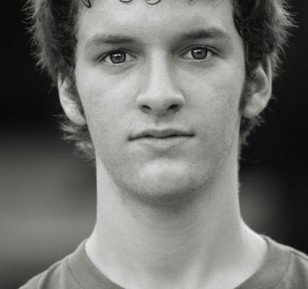Now that I’ve learned more about him, Jim Morrison of The Doors seemeslike a dark, sad man. Like a tragic poet sitting at an outdoor cafe in Paris contemplating the meaning of life. Finally, we get a peek into his mind and his heart. As many of you know, he belongs to the “27 Club,” in that along with Janis Joplin, Jimi Hendrix and others, he died at the age of 27. Add up those numbers and you get the number 9, the symbol for closure.
Me: Erik, can you get either Jerry Garcia or Jim Morrison? I’ll let you choose.
Erik: Yeah, sure. Be right back.
Jamie: He’s gone.
Me: I feel like he’s our little puppy dog fetching a stick or something!
Jamie (giggling): Sometimes they just show up without him leaving.
Me: Oh! Interesting. When he does go to get them, what does he do, just disappear? Poof?
Jamie: Yeah, it’s weird. It’s more of a sound when he disappears than a visual. It’s like “ronck.” I wanna say ronck; it’s a weird thing.
Me: Oh, okay.
Jamie laughs.
Jamie: He’s here.
Me: Who we got?
Jamie: Jim Morrison!
Me: Oh, okay. Hey, Mr. Morrison!
Jamie: I love how casual he can be!
Me: Ah. I don’t know very much about you, Jim, I’m sorry to say. Your band was The Doors, right? I feel like such a fuddy-duddy, but…
Jamie: He’d being very mannered. He says, “Yes ma’am.”
Me: I guess we’ll get started with our interview. You know what we’re doing here. I do want to say I’m honored to meet you.
Jim: Yes, I’ve heard about this.
Me: Okay. Let’s first talk about your belief system. Did you have any preconceived notions about what happened after death?
Jim (laughing): I really believe that life was intertwined with death to begin with.
Me: Hmm, I can see that. From what I understand, your music had a lot of darkness.
Jim: I thought that we don’t really live, but we don’t really die. It’s all an illusion that we choose.
Me: After you died, did you retain that belief?
Jamie: Ah, he kind of does this uncomfortable laugh and throws his chin back a little bit.
Jim: No, I actually found that it IS an illusion.
Me: Yeah!
Jim: Not the way I had defined it, but it is an illusion. We created ourselves, and we keep that within the dimensions that we feel safe in. But we don’t need to harm our physical bodies to actually leave them—to acquire death.
Me: Can you tell us about your transition?
Jim: I was done with life before I died.
Me: Hmm. Tell me about that. (I feel oddly like his shrink.)
Jim: I know many people felt I was still ready to make music—
(Pause)
Jamie: Oh, slow down, slow down, slow down!
Jim: I find it difficult when people define you for what you do for a living. So, I was a musician, and as long as I lived, I’d always be only that. Then I was able to take time away, I was seen as a “failed musician” who was not producing.
Me: Aw, I see.
Jim: I needed that time away. There was such a peace of mind within the use of alternative drugs for me. I found such vigor in life, with life.
Me: Was it an escape for you?
Jim (chuckling): I don’t know what was the escape, my life or the drugs. I don’t.
Me: Why were you done with music?
Jim: I felt that whatever else I had to say was too personal. Not public. When you’re on stage, so much of it is for the other people that you forget that you’re doing it for yourself. So my days off were to find myself or to try to, what they call, sober up and see life, to settle down more.
Me: And your death?
Jim: I was living in Paris at the time. It was my favorite place in the world—the architecture and the colors and how I could be by myself, truly. My death was a mystery, but, as I said before, you don’t have to harm yourself to leave this world. When you’re done, you’re done.
Me: So, did you harm yourself to leave this world?
Jim: No.
Me: You were just done?
Jamie (in response to something Jim said): Are you serious?
(Pause)
Jamie (to Jim): Did you have, uh, did you take drugs? Did you overdose?
(Pause)
Jim: No. It was simply time for my heart to stop beating.
Me: So, you had drugs in your system, but it wasn’t the cause of your death?
Jamie (puzzled): That’s what he’s saying?
Me: Okay. Can you describe what you saw after you died?
Jim: After I found myself on the other side, my first thought was, ‘I waited so long.”
Me: For what? For that moment? For death?
Jim: Yeah.
Me: Okay. And what did you see?
Jim: I saw the true me—the clear-headed simple boy. I saw other people—I felt like an outsider. I no longer was in the bathroom; I no longer saw my people, my friends.
Me: So, you were alone?
Jim: I was alone, yes.
Me: What kind of surroundings did you find yourself in?
(Pause)
Me: A room? A meadow?
(Why do I have to keep repeating the same questions to this guy? It’s like pulling off horseshoes with my teeth.)
Jamie: Nah, he’s just showing me white. It looks like a really heavy fog.
Me: Okay.
Jim: I stayed there for some time, then when the fog lifted, I was able to see landscape, places, rooms. You know, we’re not without structures here.
The Last 24 hours of Jim Morrison’s life:


